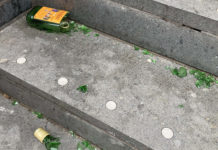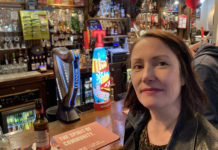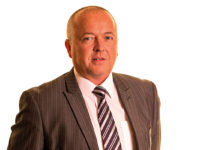IN an age of controlled media pronouncements, with politicians rarely allowed to stray ‘off message’, it’s always pleasing, if rare, to hear an elected representative shoot from the hip.
But that was the treat in store for delegates at the Scottish Licensing Law & Practice conference in Glasgow last month, when councillor Eric Milligan, convener of the Edinburgh licensing board, stepped up to give his address.
With surprising and engaging candour, Milligan, a former Lord Provost and Labour Party veteran, laid into the “absurdity” of the policy-making of the previous board, promising that things would be very different in the current regime.
Of course, there was an element of party politics at work here; scoring points at the expense of your rivals is almost mandatory in this arena. “Don’t look for enlarged liberal minds in the Liberal Party in Edinburgh,” was the withering verdict he gave on his political rivals.
But beneath the bluster there was substance that might just offer some succour to the trade in Scotland’s capital city. A good example was Milligan’s support for extending trading hours on Sundays and allowing premises to start serving alcohol at 11am instead of 12.30pm, as current policy dictates.
The move, which the board looks set to consult on in the New Year, seems to be emblematic of a new approach to licensing that Milligan is keen to foster in Edinburgh.
Listening to his speech, it seemed clear that Milligan feels the health lobby has come to have too much sway in alcohol policy, and that there needs to be more balance in the debate to reflect the positive role alcohol plays in society and in business.
A move to allow pubs to sell alcohol at 11am on Sundays, as Glasgow now does, chimes with the convener’s hopes for a more relaxed approach to licensing, and more consistent with what can be found in Europe’s major cities.
Milligan pointed out that Edinburgh had led the way on this issue in the past, and had helped spur the liberalisation of hours brought by the 1976 Licensing Act by allowing pubs to open later during the Commonwealth Games in 1970. In his view, Glasgow could do worse than look to that example as it seeks to make the Games a great advert for the city when they come in 2014.
Despite only coming into being in May, after the Scottish local elections, there is already evidence of fresh thinking from Milligan’s board.
While its predecessor adopted a ‘zero tolerance’ approach to applications for new off-sales premises and extensions for extended areas, famously crystallised by its opposition to a Sainsbury’s bid for a drinks licence for its new Cowgate store, the new board wasted little time in approving the retailer’s plans when the application came back before it.
Granting a licence to yet another supermarket might not be seen as good news by the on-trade, but it arguably reflects an attitude that business need not always play second fiddle to concerns over health, particularly when those concerns aren’t always justified.
Maybe, just maybe, things could be changing for the better in Edinburgh.
























